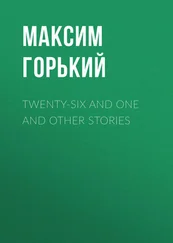Генрик Сенкевич - Lillian Morris, and Other Stories
Здесь есть возможность читать онлайн «Генрик Сенкевич - Lillian Morris, and Other Stories» — ознакомительный отрывок электронной книги совершенно бесплатно, а после прочтения отрывка купить полную версию. В некоторых случаях можно слушать аудио, скачать через торрент в формате fb2 и присутствует краткое содержание. Жанр: foreign_antique, foreign_prose, на английском языке. Описание произведения, (предисловие) а так же отзывы посетителей доступны на портале библиотеки ЛибКат.
- Название:Lillian Morris, and Other Stories
- Автор:
- Жанр:
- Год:неизвестен
- ISBN:нет данных
- Рейтинг книги:3 / 5. Голосов: 1
-
Избранное:Добавить в избранное
- Отзывы:
-
Ваша оценка:
- 60
- 1
- 2
- 3
- 4
- 5
Lillian Morris, and Other Stories: краткое содержание, описание и аннотация
Предлагаем к чтению аннотацию, описание, краткое содержание или предисловие (зависит от того, что написал сам автор книги «Lillian Morris, and Other Stories»). Если вы не нашли необходимую информацию о книге — напишите в комментариях, мы постараемся отыскать её.
Lillian Morris, and Other Stories — читать онлайн ознакомительный отрывок
Ниже представлен текст книги, разбитый по страницам. Система сохранения места последней прочитанной страницы, позволяет с удобством читать онлайн бесплатно книгу «Lillian Morris, and Other Stories», без необходимости каждый раз заново искать на чём Вы остановились. Поставьте закладку, и сможете в любой момент перейти на страницу, на которой закончили чтение.
Интервал:
Закладка:
That day, in which I had experienced so many emotions, was to end joyfully, for the people, pleased with the beautiful weather, had resolved to have a “picnic,” or open air festival. After a supper more abundant than usual, one great fire was kindled, before which there was to be dancing. Henry Simpson had cleared away the grass purposely from a space of many square yards, and sprinkled it with sand brought from Cedar River. When the spectators had assembled on the place thus prepared, Simpson began to dance a jig, with the accompaniment of negro flutes, to the admiration of all. With hands hanging at his sides he kept his whole body motionless; but his feet were working so nimbly, striking the ground in turn with heel and toe, that their movement could hardly be followed by the eye.
Meanwhile the flutes played madly; a second dancer came out, a third, then a fourth, – and the fun was universal. The audience joined the negroes who were playing on the flutes, and thrummed on tin pans, intended for washing the gold-bearing earth, or kept time with pieces of ox-ribs held between the fingers of each hand, which gave out a sound like the clatter of castanets.
Suddenly the cry of “minstrels! minstrels!” was heard through the whole camp. The audience formed a circle around the dancing-place; into this stepped our negroes, Jim and Crow. Jim held a little drum covered with snake-skin, Crow the pieces of ox-rib mentioned already. For a time they stared at each other, rolling the whites of their eyes; then they began to sing a negro song, interrupted by stamping and violent springs of the body; at times the song was sad, at times wild. The prolonged “Dinah! ah! ah!” with which each verse ended, changed at length into a shout, and almost into a howling like that of beasts. As the dancers warmed up and grew excited, their movements became wilder, and at last they fell to butting each other with blows from which European skulls would have cracked like nutshells. Those black figures, shone upon by the bright gleam of the fire and springing in wild leaps, presented a spectacle truly fantastic. With their shouts and the sounds of the drum, pipes, and tin pans, and the click of the bones, were mingled shouts of the spectators: “Hurrah for Jim! Hurrah for Crow!” and then shots from revolvers.
When at last the black men were wearied and had fallen on the ground, they began to labor with their breasts and to pant. I commanded to give each a drink of brandy; this put them on their feet again. But at that moment the people began to call for a “speech.” In an instant the uproar and music ceased. I had to drop Lillian’s arm, climb to the seat of a wagon, and turn to those present. When I looked from my height on those forms illuminated by the fires, forms large, broad-shouldered, bearded, with knives at their girdles, and hats with torn crowns, it seemed to me that I was in some theatre, or had become a chieftain of robbers. They were honest brave hearts, however, though the rough life of more than one of these men was stormy perhaps and half wild; but here we formed, as it were, a little world torn away from the rest of society and confined to ourselves, destined to a common fate and threatened by common dangers. Here shoulder had to touch shoulder; each felt that he was brother to the next man; the roadless places and boundless deserts with which we were surrounded commanded those hardy miners to love one another. The sight of Lillian, the poor defenceless maiden, fearless among them and safe as if under her father’s roof, brought those thoughts to my head; hence I told everything, just as I felt it, and as befitted a soldier leader who was at the same time a brother of wanderers. Every little while they interrupted me with cries: “Hurrah for the Pole! Hurrah for the captain! Hurrah for Big Ralph!” and with clapping of hands; but what made me happiest of all was to see between the network of those sunburnt strong hands one pair of small palms, rosy with the gleam of the fire and flying like a pair of white doves. I felt then at once, What care I for the desert, the wild beasts, the Indians and the “outlaws”? and cried with mighty ardor, “I will conquer anything, I will kill anything that comes in my way, and lead the train even to the end of the earth, – and may God forget my right hand, if this is not true!” A still louder “Hurrah!” answered these words, and all began to sing with great enthusiasm the emigrants’ song: “I crossed the Mississippi, I will cross the Missouri.” Then Smith, the oldest among the emigrants, a miner from near Pittsburgh in Pennsylvania, spoke in answer. He thanked me in the name of the whole company, and lauded my skill in leading the caravan. After Smith, from nearly every wagon a man spoke. Some made very amusing remarks, for instance Henry Simpson, who cried out every little while: “Gentlemen! I’ll be hanged if I don’t tell the truth!” When the speakers had grown hoarse at last, the flutes sounded, the bones rattled, and the men began to dance a jig again.
Night had fallen completely; the moon came out in the sky and shone so brightly that the flame of the fires almost paled before its gleams; the people and the wagons were illuminated doubly by a red and a white light. That was a beautiful night. The uproar of our camp offered a strange but pleasing contrast to the calmness and deep slumber of the prairie.
Taking Lillian’s arm, I went with her around the whole camp; our gaze passed from the fires to the distance, and was lost in the waves of the tall and dark grasses of the prairie, silvery from the rays of the moon and as mysterious as spirits. We strolled alone in that way. Meanwhile, at one of the fires, two Scottish Highlanders began to play on pipes their plaintive air of “Bonnie Dundee.” We both stopped at a distance and listened for some time in silence; all at once I looked at Lillian, she dropped her eyes, – and without knowing myself why I did so, I pressed to my heart long and powerfully that hand which she had rested on my arm. In Lillian too the poor heart began to beat with such force that I felt it as clearly as if on my palm; we trembled, for we saw that something was rising between us, that that something was conquering, and that we would not be to each other as we had been hitherto. As to me I was swimming already whithersoever that current was bearing me. I forgot that the night was so bright, that the fires were not distant, and that there were people around them; and I wanted to fall at her feet at once, or at least to look into her eyes. But she, though leaning on my arm, turned her head, as if glad to hide her face in the shade. I wished to speak but could not; for it seemed to me that I should call out with some voice not my own, or if I should say the words “I love” to Lillian I should drop to the earth. I was not bold, being young then, and was led not by my thoughts simply, but by my soul too; and I felt this also clearly, that if I should say “I love,” a curtain would fall on my past; one door would close and another would open, through which I should pass into a certain new region. Hence, though I saw happiness beyond that threshold I halted, for this very reason it may be, – that the brightness beating from out that place dazzled me. Besides, when loving comes not from the lips, but the heart, there is perhaps nothing so difficult to speak about.
I had dared to press Lillian’s hand to my breast; we were silent, for I had not the boldness to mention love, and I had no wish to speak of aught else, – it was impossible at such a time. It ended with this, that we both raised our heads and looked at the stars, like people who are praying. Then some one at the great fire called me; we returned; the festival had closed, but to end it worthily and well, the emigrants had determined to sing a psalm before going to rest. The men had uncovered their heads, and though among them were persons of various faiths, all knelt on the grass of the prairie and began to sing the psalm, “Wandering in the Wilderness.” The sight was impressive. At moments of rest the silence became so perfect that the crackling of sparks in the fire could be heard, and from the river the sound of the waterfalls came to us.
Читать дальшеИнтервал:
Закладка:
Похожие книги на «Lillian Morris, and Other Stories»
Представляем Вашему вниманию похожие книги на «Lillian Morris, and Other Stories» списком для выбора. Мы отобрали схожую по названию и смыслу литературу в надежде предоставить читателям больше вариантов отыскать новые, интересные, ещё непрочитанные произведения.
Обсуждение, отзывы о книге «Lillian Morris, and Other Stories» и просто собственные мнения читателей. Оставьте ваши комментарии, напишите, что Вы думаете о произведении, его смысле или главных героях. Укажите что конкретно понравилось, а что нет, и почему Вы так считаете.












